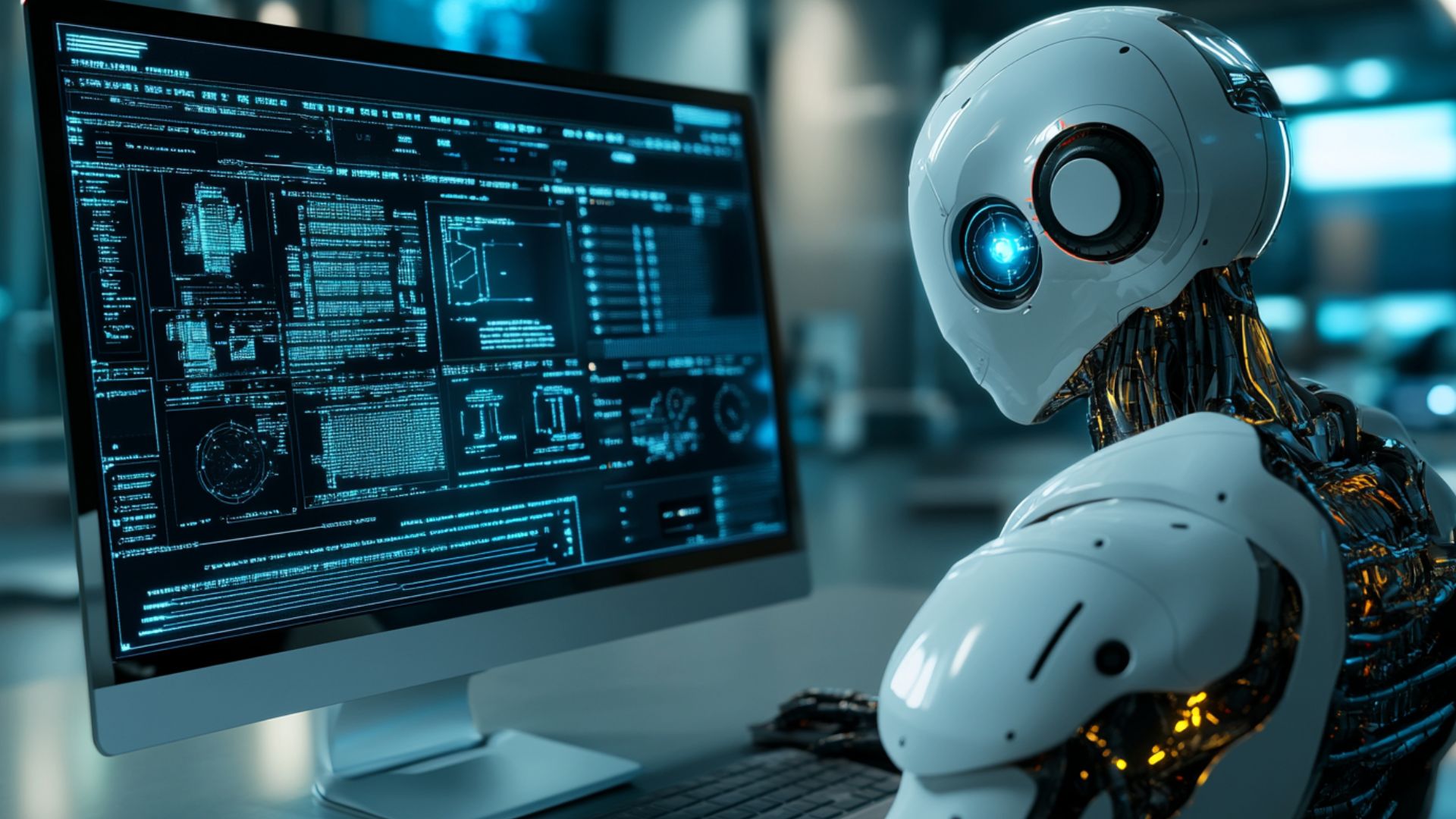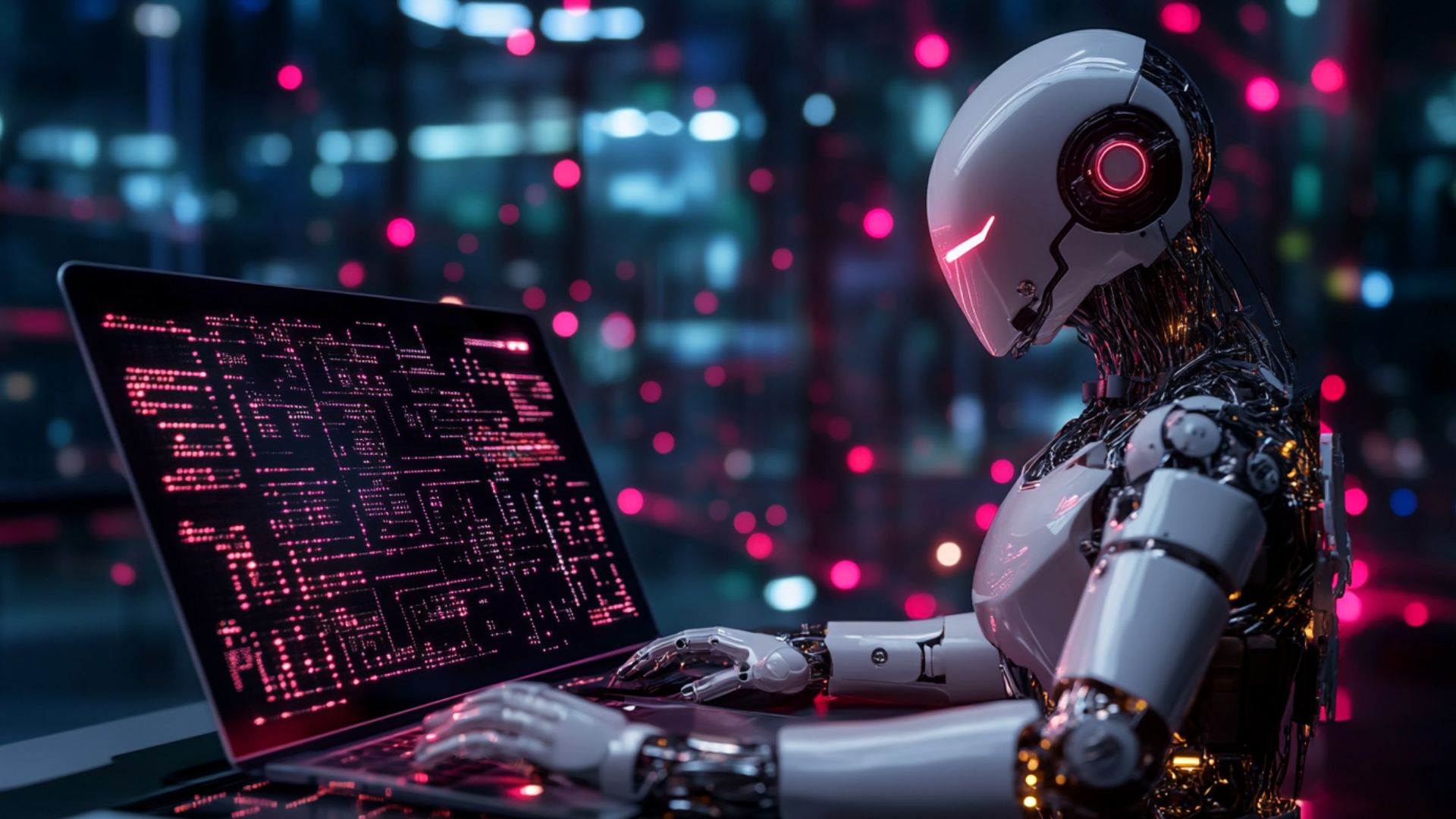Transforming Guest Experiences with AI in Hotels

The infusion of AI orchestrates a profound reformation. It elevates guest centricities to bizarre heights. The advent of MI in inns marks a pivotal shift. Here, modern hi-tech converges with personalized service. It redefines how clients interact with their accommodation. It is from streamlined check-ins to intuitive room customization. AI integrates seamlessly to expect and fulfill guest needs. We unravel the multifaceted impact of MI in inns. Let's manage how this innovative technology improves operational punch.
Also, we'll explore how it creates memorable and personify guest-centricities. AI for hotels is not merely a technological upgrade. It is a strategic investment in hospitality excellence. Whether through AI-powered concierge services, predictive room preferences, or dynamic pricing models. Inns leverage AI to create a harmonious blend of potency and personalization. Let's navigate the realm of these modern reformations. We'll illuminate the path toward a new era of unique visitor satisfaction in the hospitality sector.
The Advent of AI in Hotels: A New Era of Hospitality
In the developing area of the hospitality sector, the advent of MI heralds a new era. It promises a paradigm shift in delivering services and engaging with visitors. Introducing AI technology in motels encompasses several reformative aspects:
- Streamlined Operations: AI automates routine tasks. They optimize operational efficiency and allow staff to focus on personalized guest experiences.
- Enhanced Guest Services: Integrating AI in hotels introduces intelligent concierge services. They provide real-time assistance, customized recommendations, and seamless customer communication.
- Predictive Room Customization: Such algorithms analyze guest preferences and behaviors. They allow inns to predict and customize room amenities and services. They create a personalized and welcoming environment.
- Efficient Check-ins and Check-outs: AI streamlines the check-in and check-out processes. It minimizes wait times and enhances the overall guest experience.
- Dynamic Pricing Models: MI enables dynamic adjustments in pricing strategies. Their base is demand, occupancy, and other factors. They ensure competitive rates and maximize revenue.
As hotels embrace AI, they enter a new phase of intelligent hospitality. They leverage tech to improve operational punch. Also, they create memorable and tailored centricities for their guests.
AI for Hotels: Enhancing Service Quality and Efficiency
AI for hotels introduces tailored apps that revolutionize the industry. It is from chatbots facilitating seamless guest communication to predictive analytics. It optimizes room preferences. AI streamlines operations and elevates service standards. Automated check-ins, personalized recommendations, and dynamic pricing models enable more guest-centric experiences. Integrating AI improves the experience. Also, it places hotels at the forefront of technological novelty in the hospitality industry. Merging AI delivers a harmonious mix of punch and personalized service.
AI Hotels: Pioneering Smart Hospitality Solutions
Such inns are at the forefront of brilliant hospitality. AI hotels leverage intelligent solutions to enhance guest satisfaction. Examples include automated check-ins, AI-powered concierge services, and predictive analytics. They are helpful for personalized room preferences. Notable hotels successfully implement these technologies. They provide seamless interactions, efficient services, and customized experiences. As pioneers in integrating AI, these establishments redefine the hospitality area. It sets a benchmark for innovative, guest-centric solutions in the industry.
Conversational AI in Hotels: Personalizing Guest Experiences

Spoken MI is revolutionizing the hotel sphere. It provides a personalized touch to guest interactions. Leveraging conversational AI hotels, chatbots, and virtual concierges is reforming visitor satisfaction:
- Instant Assistance: Bots immediately respond to guest inquiries. It offers information about amenities, local attractions, or room services.
- Efficient Bookings: Virtual concierges assist guests in booking rooms. It makes reservations at on-site restaurants or scheduled services. They enhance the overall punch.
- Personalized Recommendations: Through data analysis, conversational AI tailors restaurant and entertainment. Also, it adapts local attraction guidance based on guests' individual preferences.
- Automated Check-ins: Conversational AI hotels facilitate smooth check-in processes. It reduces wait times and enhances the overall arrival experience.
- 24/7 Availability: These tools ensure round-the-clock assistance. It contributes to heightened guest satisfaction and engagement throughout their stay.
Conversational AI streamlines operations. Also, it creates a more personalized and responsive environment. Such tools redefine client interactions in the hospitality sector.
Intelligent Hotels: Redefining Guest Engagement
Intelligent hotels redefine guest interaction by seamlessly integrating AI techs. It is bright room controls that adapt to individual preferences. Also, such techniques involve personalized recommendations driven by AI algorithms. These establishments prioritize a technologically enhanced and customized guest experience. The convergence of advanced technologies ensures efficient and convenient stays. Also, it marks a significant shift towards a more responsive and tailored hospitality approach. Intelligent hotels leverage AI to create an environment. Guest interaction here is at a high level. It sets new standards for innovative and customer-focused experiences.
Machine Learning in the Hotel Industry: Predicting and Fulfilling Guest Needs
ML is pivotal in predicting and fulfilling guest needs in such a sphere. By analyzing vast datasets, such algorithms discern patterns in guest preferences. They enable individual endorsements and services. These algorithms continuously learn and adapt, ensuring a dynamic understanding of guest behaviors. Also, they ultimately lead to improved satisfaction. It is from predicting room preferences to anticipating service requirements. Machine learning in the hotel industry enhances guest centricities. It does it by tailoring services to individual needs. That goes beyond traditional hospitality approaches.
Implementing AI in Hotels: Challenges and Strategies
Accomplishing AI in hotels presents unique challenges. They require thoughtful plans for successful integration:
- Cost Considerations: Initial setup costs and ongoing maintenance can be substantial. It requires a careful budgetary allocation.
- Staff Training: Ensuring hotel staff skills in AI tools is crucial for seamless operations.
- Data Privacy Concerns: Handling sensitive guest data requires robust security measures. They help to protect privacy and comply with regulations.
- Guest Acceptance: Some guests may be hesitant or unfamiliar with AI apps. This necessitates effective communication about the benefits.
Strategies for successful AI integration include:
- Pilot Programs: Start with small-scale MI implementations to test and refine strategies. You must do it before broader adoption.
- User-Friendly Interfaces: Ensure AI hotel apps have intuitive interfaces. It helps to ease staff and guest interactions.
- Continuous Training: Provide ongoing training to staff. It allows us to keep them abreast of AI advancements and changes in operational procedures.
- Transparent Communication: Communicate the benefits of AI to guests. They address any concerns and ensure a positive perception.
Addressing these challenges and implementing these tricks are pivotal. So, inns can navigate the complexities of AI integration, maximizing the benefits for staff and guests.
AI in the Hotel Industry: Transforming Operations and Management
The integration of AI in the hotel industry has emerged as a reformative force. It revolutionizes both operations and control practices. MI technologies are pivotal in optimizing resource regulation and enhancing energy punch. Also, they streamline staff allocation:
- Resource Management: MI optimizes resource allocation by analyzing historical data to predict demand. It ensures efficient inventory control and minimizing waste.
- Energy Efficiency: AI-driven systems monitor energy usage in hotels. They automatically adjust lighting, heating, and cooling. It helps to enhance energy punch and reduce costs.
- Staff Allocation: MI analyzes booking patterns and guest preferences to optimize staff schedules. This ensures that the right personnel deploys where and when needed. It helps improve the quality of service.
- Predictive Maintenance: AI predicts equipment attendance needs, preventing breakdowns and minimizing downtime. It ultimately contributes to smoother operations.
- Dynamic Pricing: Such algorithms adjust room rates in real-time based on demand, occupancy, and other factors. They optimize revenue and enhance pricing strategies.
The impact of AI in the hotel industry extends beyond improving operational efficiency. It represents a fundamental shift in how hotels manage resources. Also, such sway enhances sustainability and elevates overall guest satisfaction.
Artificial Intelligence in the Hotel Industry: The Future of Guest Services
The role of MI in the inn sphere is ready to shape the future of guest services. The continuous integration of artificial intelligence in the hotel industry presents exciting possibilities:
- Enhanced Personalization: Futurity AI apps will enable even deeper personalization. They provide guests with tailored experiences based on historical preferences and behaviors.
- Voice-Activated Assistants: It offers hands-free controls, personalized recommendations, and seamless interactions.
- Predictive Service: AI algorithms will evolve to predict guest needs before they arise. They allow for anticipatory service and enhance overall satisfaction.
- Robotics and Automation: Further integration of MI-based robotics for tasks. Among them are room service, housekeeping, and concierge services.
- Data Security: Advancements in AI will contribute to enhanced data security measures. They ensure the protection of guest information.
AI technologies continue to advance. So, the future of guest services holds promises of unprecedented personalization and innovation. It further solidifies the reformative impact of artificial intelligence in the hotel industry.
Conclusion
Integrating MI into hotels represents a seismic shift in creating and delivering customer-centricity. It is from individualized guidance to streamlined operations. AI elevates the hospitality sector, fostering punch and guest satisfaction. Inns embrace these tech advancements. So, the hereafter promises even more profound reformations. They ensure that AI remains a cornerstone in the relentless pursuit of exceptional and tailored guest services. The journey towards redefining hospitality through AI is a trend. Also, it is a dynamic evolution shaping the futurity of unparalleled guest centricities in this sphere.
FAQ
Examples include AI-powered chatbots for instant guest support. Virtual concierges offer personalized recommendations and automated room controls for a customized environment.
AI analyzes guest preferences, behaviors, and historical data to offer personalized recommendations. Also, I support room customization and anticipatory services. They create a unique and tailored experience.
Yes, AI contributes to improved data security measures. It ensures the protection of guest information through advanced encryption and authentication protocols.


